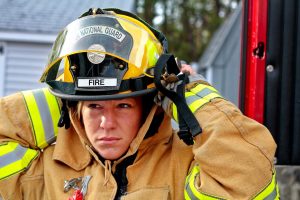With the population of older workers rising, it is becoming increasingly important for governments, employers and educational institutes to invest in adult training and education. According to Statistics Canada, 54% of Canadians aged 25 to 64 have a college or university credential; 28.5% have a bachelor’s degree. These numbers are up from previous years and the number of adults returning to school after entering the workforce continues to increase. This shift is prompting educational institutions to take creative approaches to serving mature students.
Who is deemed a mature student?
Mature students, as the British Columbia Institute of Technology (BCIT) has characterized them, are individuals who enter or re-enter post-secondary after the age of 25 and have previous mid-level work experience. These students enter post-secondary for a variety of reasons. Some go back to gain skills for a new career while others are seeking an advanced credential to help them progress in their current career. These individuals often have a vast amount of workplace training that has given them invaluable skills that cannot be taught through formal education programs. However, in many cases, post-secondary institutions and employers do not recognize this prior learning.
Their educational experiences
Prior learning assessment and recognition (PLAR), or recognition of prior learning (RPL), lets individuals use knowledge and skills learned formally or informally or through experience to gain exemption from particular courses. RPL is key to the pursuit of education by mature students. It is estimated that 300,000 Canadians are being held back from pursuing education due to lack of recognition, and that 185,000 of these individuals are unlikely to pursue higher education credentials because they are not confident their existing education and skills will be recognized.
BCIT’s approach to mature military students
BCIT School of Business and SITE Centre Director Kevin Wainwright and his team understood the importance of investing in mature students by recognizing the skills they acquired at work. In 2009, they started analyzing the training and education acquired by Canadian Armed Forces members. Findings revealed military members have many of the skills employers are looking for. Further findings demonstrated that in terms of content and number of hours spent on training and education, a specific level of military training or rank is equivalent to a non-business technical diploma.
BCIT’s School of Business has many programs in which students can be granted advanced placement into second year. One of the requirements for this is a diploma or degree from a post-secondary institution or a significant amount of management work experience. Once BCIT determined a specific threshold of military training and experience is equivalent to a diploma, it was decided military members can be eligible for advanced placement just as those with individuals with a diploma or degree.
This research led the SITE Centre to create the Advanced Placement and Prior Learning (APPL) program, which translates students’ military training into post-secondary credits. It allows military members to take advantage of a fast-tracked route for earning a credential, providing them advanced placement into the second year of BCIT’s business education programs. Students who have successfully passed their assessments have been able to earn diplomas in only one year and bachelor’s degrees in two years. Further, these students often earn higher grades when compared to the regular-entry students. To date, 65 military students have graduated from the APPL program, and 85 are currently enrolled.
A national model

The APPL program has expanded significantly to include additional mature student groups including first responders, tradespeople, individuals with foreign credentials, and general mature students with supervisory and management experience. Four hundred students from these additional mature student groups are currently enrolled in programs and 110 have graduated after being given advanced standing through the APPL Program at BCIT. The program has also expanded to include partnerships with private post-secondary institutions, including Vancouver Film School and Sprott Shaw College.
The widespread benefits of RPL
The positive impact of recognizing prior learning goes beyond just the student, who benefits by having a shorter road to earning a credential. In the classroom, a diverse group of students means varying perspectives, which enriches the educational experience for all. At the industry level, the APPL assessment process validates the legitimacy of workplace training, and it helps with workforce planning and career development for employees. When it comes to Canada’s economy, the APPL program maximizes people potential and in the long run it may increase tax revenue by opening up pathways to higher-paying jobs for many Canadians.
Recognition of prior learning teaches us that learning comes in many forms, not only in a formal classroom setting. As the number of mature students entering or re-entering post-secondary programs increases, colleges and universities have started to realize the positive impact of valuing prior learning. By considering alternative forms of learning and creating educational pathways that fit this unique group, post-secondary institutes can better meet the needs of mature students.




